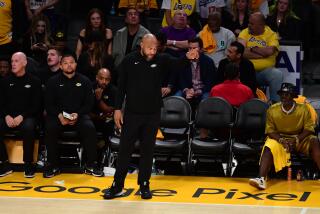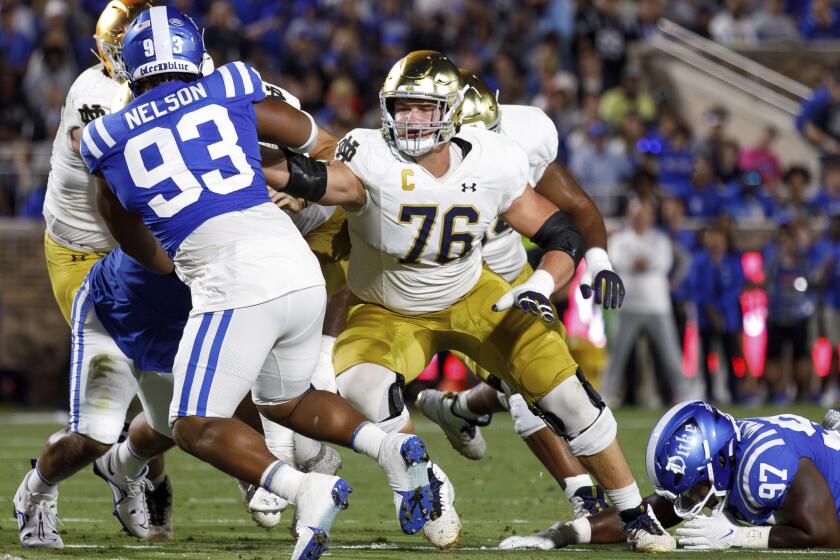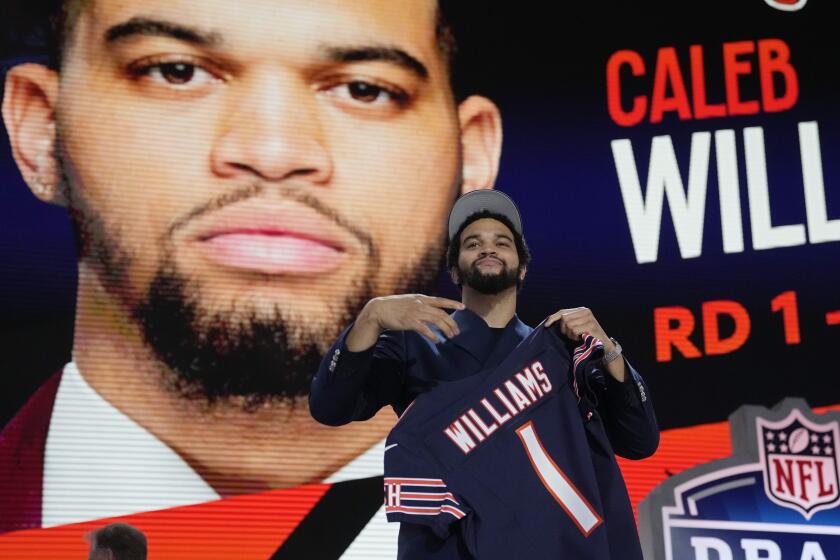Called out at home
IT HAS ALWAYS SEEMED PUZZLING that Major League Baseball could have the chutzpah to call its annual tournament the World Series, given that nearly all its teams play in U.S. cities. Now, the league’s effort to broaden its global reach has hit a roadblock put up not by international sporting officials but by the Treasury Department.
Shortly after Olympics officials decided to boot baseball from the Games after 2008, Major League Baseball announced it would start a global springtime tournament to be held every four years. Called the World Baseball Classic, it would pit American stars against the best players from other baseball-loving nations. It’s a great idea that would energize sports fans and boost the popularity of America’s pastime around the globe, if not for the United States’ hysterical policies on Cuba -- one of 16 nations selected for the March 2006 tournament.
Because a four-decade-old trade embargo prohibits Americans from entering into contracts by which Cuba may profit, Treasury officials have ruled that Cuba, which would earn at least 1% of the proceeds from the tournament, cannot participate. A proposal stipulating that the Cuban team would receive nothing more than free room and board is pending. Washington should accept it rather than hand Cuban leader Fidel Castro a propaganda victory.
Were the Cuban team to join the tournament, Castro would have more to fear than the U.S. After playing the Baltimore Orioles in an exhibition series six years ago, the Cuban team suffered a wave of defections. Castro was hesitant to let a team enter the tournament for fear that the players he uses as propaganda tools would follow suit. Now Washington has offered him a convenient excuse to pull out, and another reason for he and like-minded Latin American leftists such as Venezuelan President Hugo Chavez to vilify the United States.
Treasury’s decision seems particularly counterproductive given that Cuba plays U.S. teams in a number of international sporting events -- the Olympics and the Pan American Games, for example -- and that it’s not difficult to prevent the Cuban government from profiting. During the Baltimore exhibition series, all proceeds went to American and Cuban charities that promote athletics. But the decision is in keeping with President Bush’s Cuba policy, which has departed from the slight detente between the countries since the 1990s by severely tightening travel restrictions. If Cuba is kept out of the tournament, it is Americans who will be the losers.
More to Read
Get our high school sports newsletter
Prep Rally is devoted to the SoCal high school sports experience, bringing you scores, stories and a behind-the-scenes look at what makes prep sports so popular.
You may occasionally receive promotional content from the Los Angeles Times.






